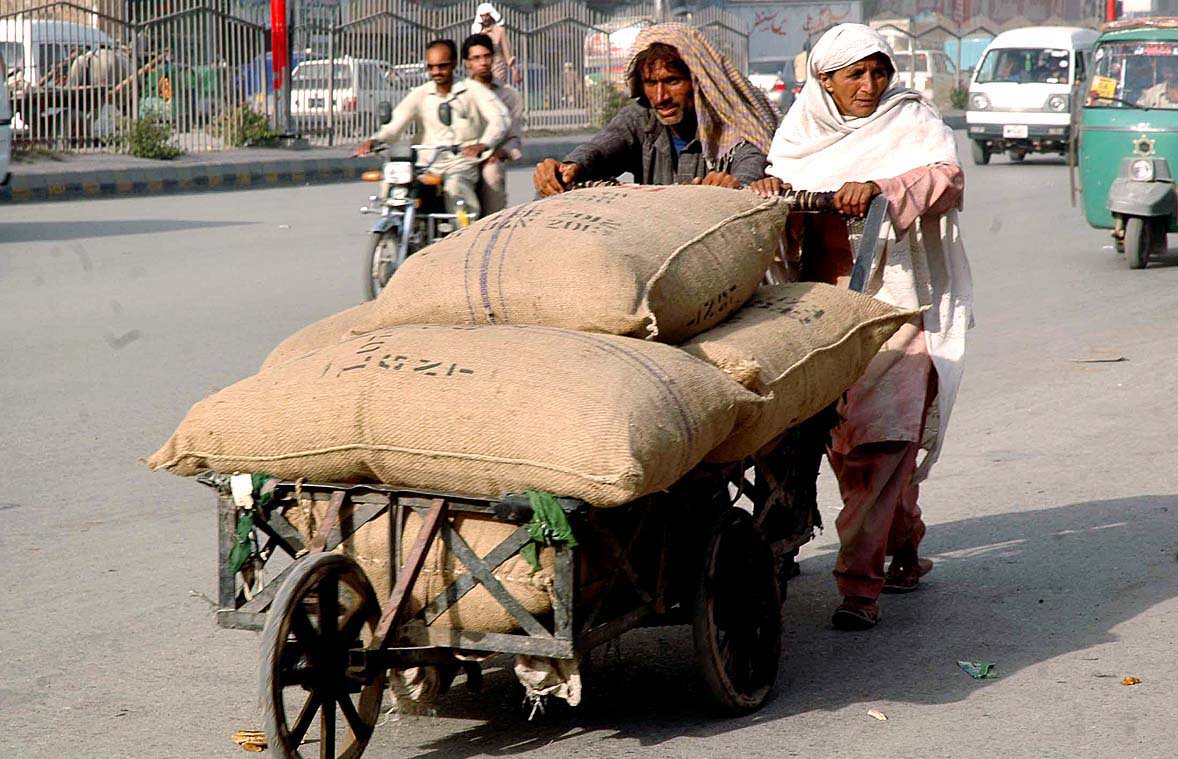
As overall exports decline in the country, the consumption and production of jute is also facing a gradual drop calling for the immediate attention of the government, Pakistan Jute Mills Association (PJMA) Secretary General Muhammad Younus said.
“The government should introduce mandatory jute packaging like other regional countries have done,” he said.
“The government is itself contributing heavily to the environment degradation by using 64 million polypropylene bags (equivalent to 3.520 billion polyethylene bags) for wheat and grain storage.”

The production of jute (hessian, sacking, and others) in the country is almost stagnant at 101,722 tons in 2013-14 compared to 103,957 tons a decade ago in 2003-04 after touching record 137,411 tons in 2008-09, according to data compiled by the industry.
On the other hand, the consumption of raw jute was 134,427 tons in 2007-08 that has now come down to 108,917 tons in 2013-14. The consumption reached a peak of 145,147 tons in 2008-09.
The declining pattern of consumption and production has adversely affected exports as well impacting the country’s revenue proceeds.

The exports of jute goods were 13,563 tons in 2007-08, which touched its peak of 19,102 tons in 2012-13 but now it has fell down to just 10,039 tons in 2013-14.
“The jute sector in Pakistan is under tremendous pressure due to the challenges it is facing. Some of these encompass synthetic packaging, lack of research, development and innovation, import dependence, labour intensive segment, and rising food commodity prices,” said Younus.
He added that import dependence of raw material can further be reduced if production of jute is promoted by the government. “Pakistan used to be the biggest importer of raw fibre for its domestic consumption but now China and India lead the fibre import market,’ he added.
In the region, India is the leading producer and the biggest consumer of jute with about 45% contribution to the total produced in the world, while Bangladesh is the largest exporter of raw fibre.
“Pakistan should learn from these countries and promote jute cultivation,” he suggested.
The jute industry is labour intensive compared to other industries in the country. Manufacturing wages as percentage of manufacturing cost in the jute industry is around 20%, while it is 7% in textile and 3% each in polyester and tractor industries, Younus said.
There are five mills in the private sector in the country and the total capacity of the industry is 125,000 tons per annum with current production level of 100,000 tons.
He said the government should encourage the use of jute instead of polypropylene especially for wheat storage because jute bags have a longer life.
Published in The Express Tribune, January 16th, 2015.
Like Business on Facebook, follow @TribuneBiz on Twitter to stay informed and join in the conversation.
COMMENTS (1)
Comments are moderated and generally will be posted if they are on-topic and not abusive.
For more information, please see our Comments FAQ





1734951821-0/Copy-of-Untitled-(88)1734951821-0-270x192.webp)

1734899716-0/image-(15)1734899716-0-270x192.webp)








1734778885-0/Untitled-(10)1734778885-0-270x192.webp)






So, has someone in the ruling party has set up a jute mill ?